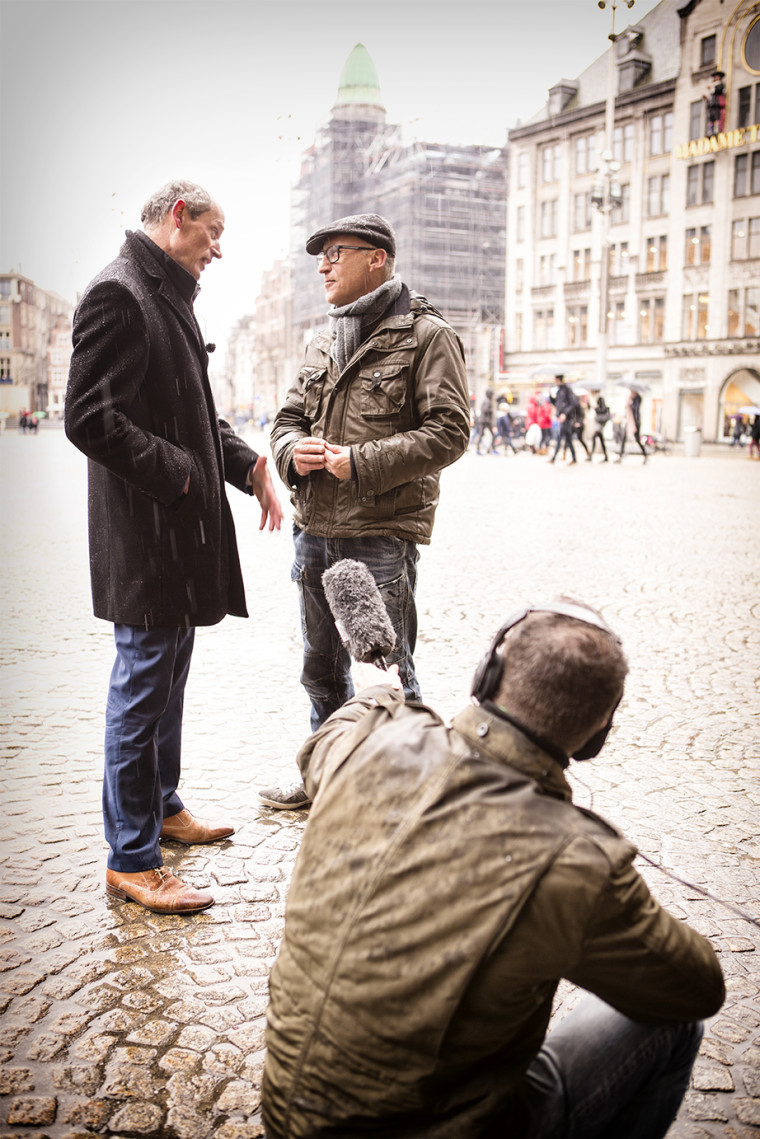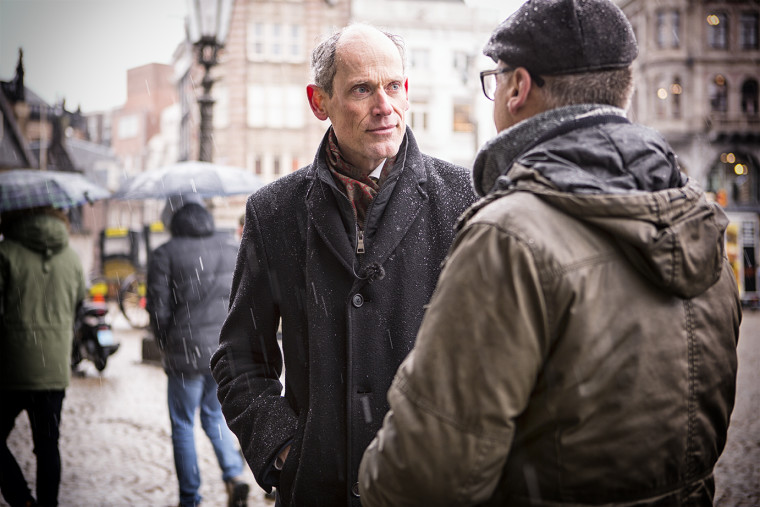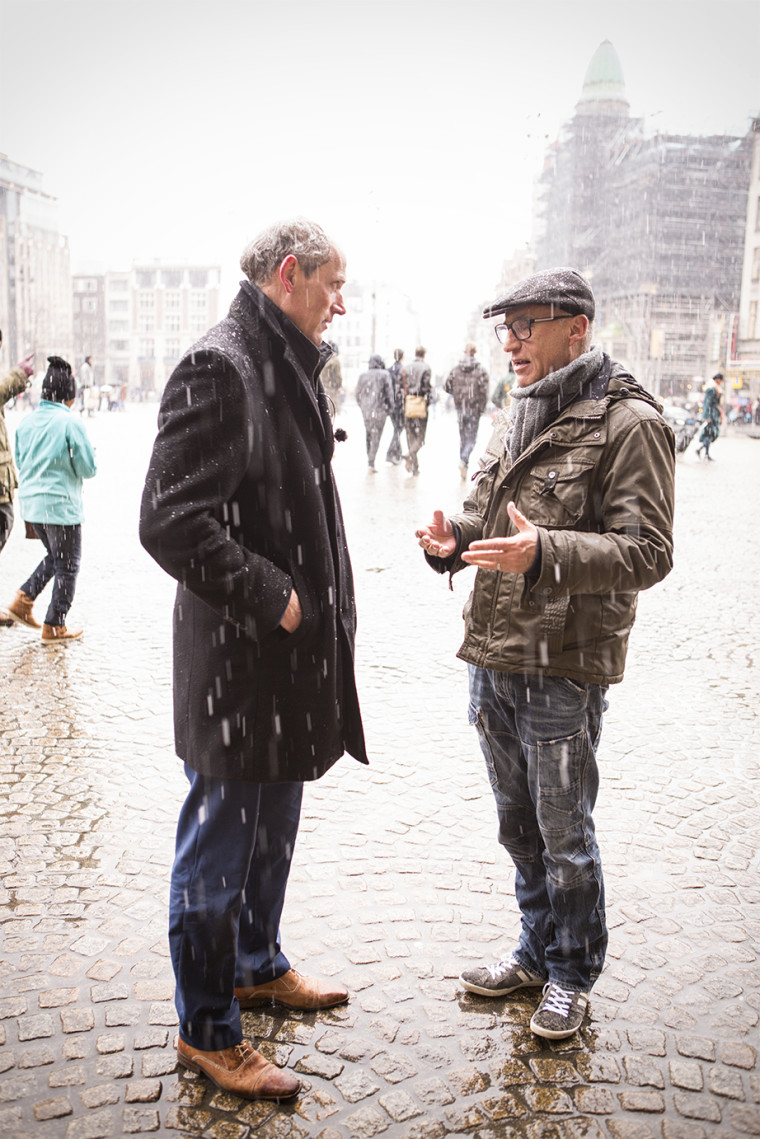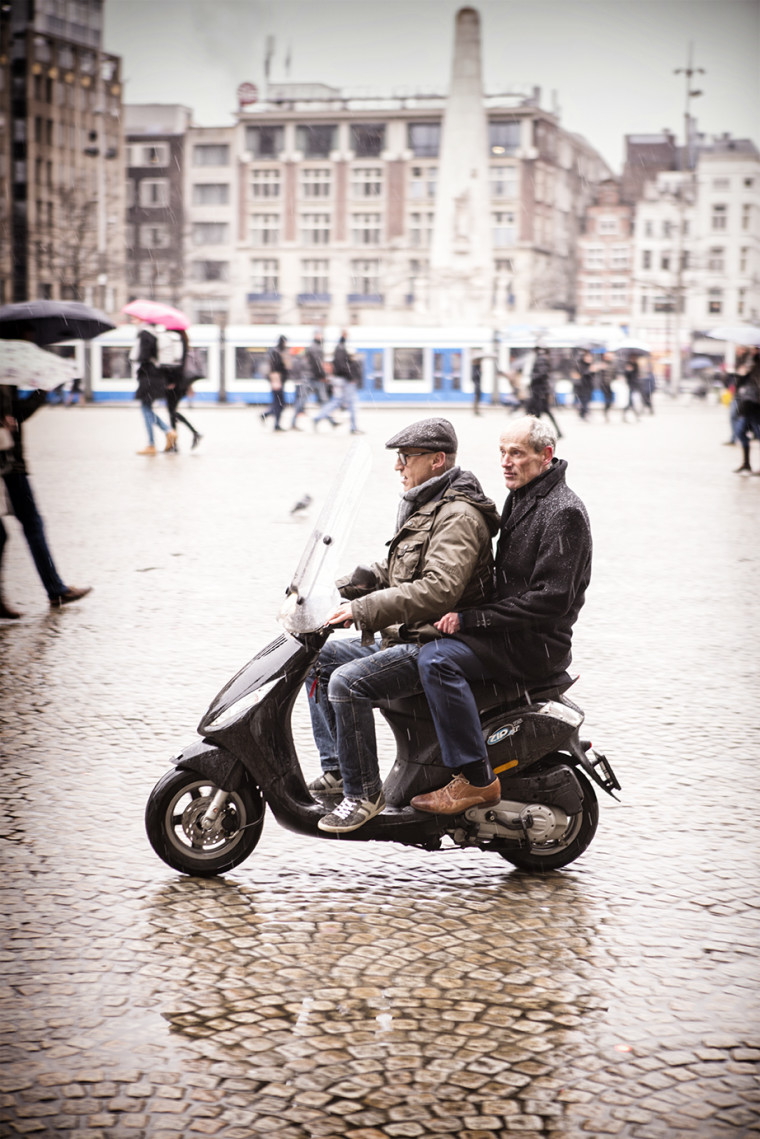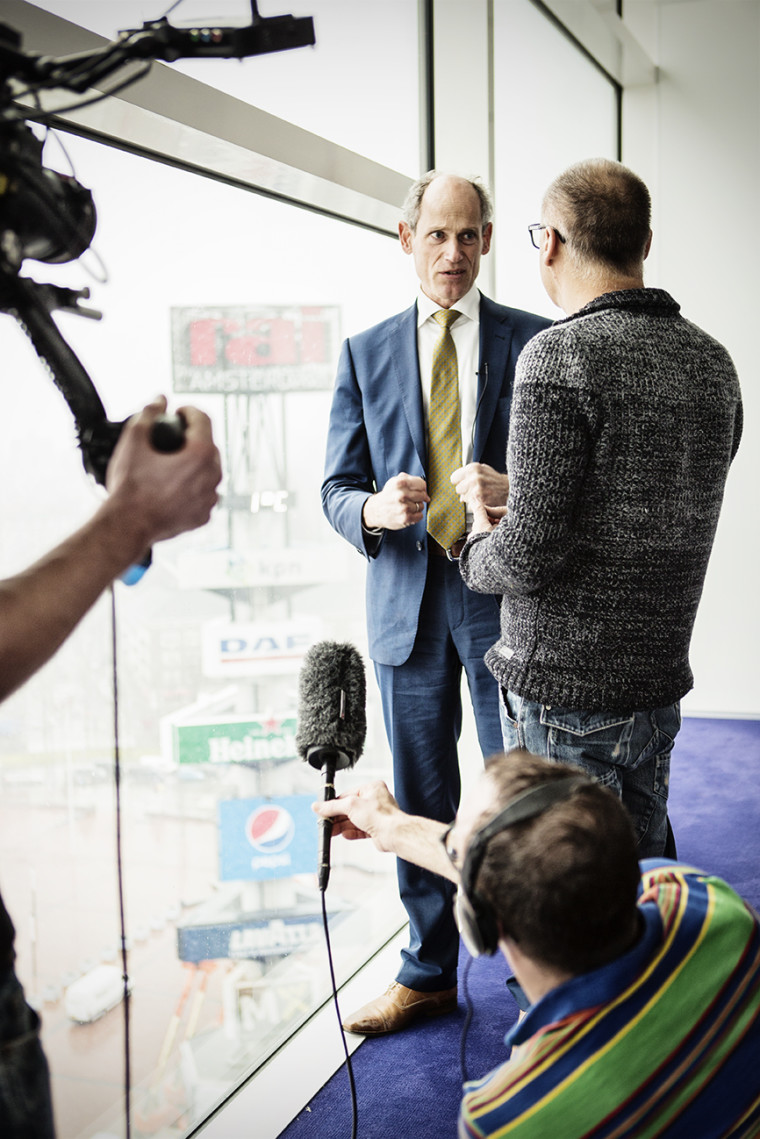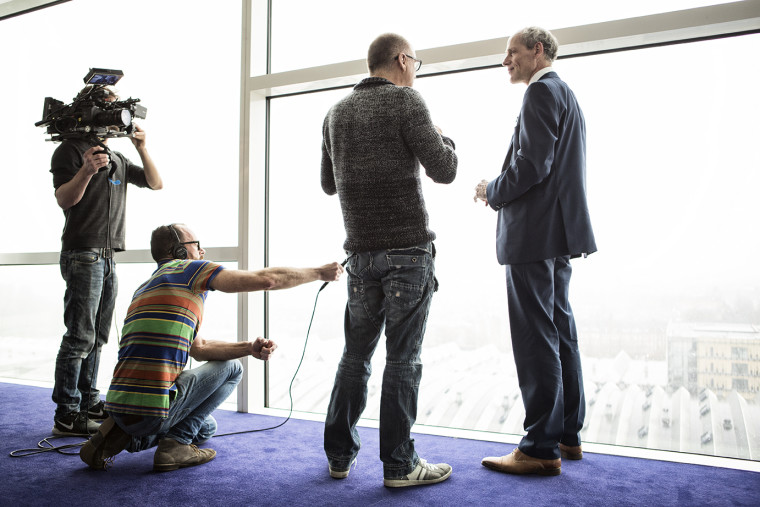Aids 2018
In 2018, the Netherlands will host the biennial international AIDS conference, AIDS 2018. Being invited to host this major conference is a sign of recognition for the role played by the Netherlands in the international fight against AIDS. The conference will take place in Amsterdam RAI in July 2018 and is expected to attract approximately 20,000 visitors.
“We are honored to host AIDS 2018 and committed to making it a historic event,” said Mr. Lambert Grijns, the Netherlands Ambassador for Sexual and Reproductive Health & Rights and HIV/AIDS.
Lambert Grijns
MAN OF THE WORLD
Lambert Grijns is the Dutch Ambassador for Sexual and Reproductive Health and Rights (SRHR). As ambassador he is responsible for an extensive portfolio, but about 30 million people worldwide see him foremost as an inspired HIV and AIDS ambassador. Rightly so. From the UN conference tables in New York to the village clinics in Africa, Grijns fights for the interests and rights of homosexuals, sex workers, drug addicts, men, women and everyone with HIV and AIDS.
Because of his height and friendly appearance he looks like a charming beanpole. But don’t be deceived. Once he starts talking it is very clear that he has been blessed with a critical eye and a clear moral compass.
Grijns played a crucial role in the biennial AIDS conference being awarded to Amsterdam in July 2018. He is genuinely happy about this. ‘Many countries could do with a kick up the ass. This conference provides a suitable platform for that.’
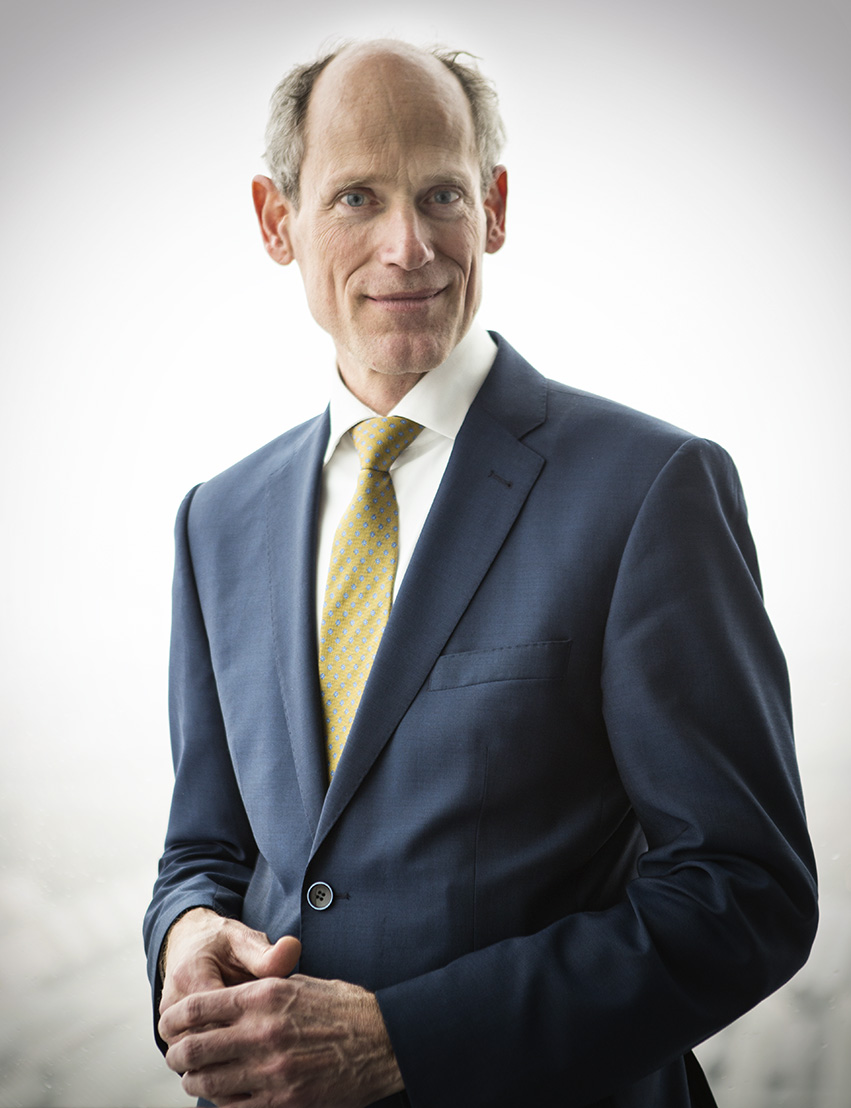
[toggle open=”no” title=”Read more…” ]
The day before our meeting he e-mails to say he hopes that his planned journey through Amsterdam on his scooter will be possible now that a hard frost and snow showers are forecast.
I read the e-mail three times.
Not a wimp, I think. Not a whiner. And not your average ambassador.
The next day he starts our meeting in the hall with his coat still in his hand. The miserable situation for people with HIV in Russia and the Caucasus deserves much more attention, I hear him say. The positive developments surrounding a vaccine against the virus offer more hope for the future…
You seem to move with ease between many cultures. Does this have anything to do with your background, your upbringing?
Maybe. I was born and raised in Indonesia. I lived there until I was 8. Later I did an internship and worked there…it perhaps explains my inclination to work outside of The Netherlands.
Indonesia was so far away from Holland then that there was a lot we didn’t get. I spoke an old fashioned sort of Dutch there.
But when we returned to Holland in 1970 our family was very eager to experience all the unknown and new things that we discovered here. My fascination for culture comes from this I think. What makes a society!? How does one society relate to another?
His past is very evident and never far away in our conversation. It’s lovely to hear tales about President Sukarno asking his father to translate the New Testament into Bahasa Indonesian, about the ties and the knickerbockers he was dressed in when he went to school…
He is very aware of the fact that his upbringing has played an important part in the man he is today. Driven, almost exasperated he talks about the values and norms of then and now, about the moral dilemmas in life, about the role of faith and religion. Themes, which he, in his role as HIV and AIDS ambassador, has to deal with daily.
My upbringing was not a strict Christian one. Not strict, but Christian. I was brought up with clear values and norms. At home we lived with a positive attitude towards the Christian faith. Faith, my parents taught me, is something that helps you, a tool of ultimate purity. They stayed away from terms like sin, punishment, hell. They did not play a role at all!
And does that helps you with your work now?
My parents’ lessons were a good grounding for the work I do now. I’m not a fighter in the classical sense, I believe in the goodness of people.
I have the deep conviction that people…
He sighs, falls silent. A quick sip of coffee helps him gather his thoughts.
It’s all about respect! Respect for others, for those who think differently, for other faiths. In my work I spend a lot of time with the religion of others. I’m no expert, sometimes I know nothing about it…. But I know how important religion can be for the people I meet.
The blunt tone in which we Dutch talk about it can make me very angry. That we do not care about other religions, well, ok, that’s one. But that we can muster so little respect for how another approaches his religion…
What I find difficult is that today the discussion is often determined by extreme ideas within the different religions. That makes it a lot harder to keep sight of the value of religion.
Faith is an absolute incentive for some. It is difficult to debate with people who argue from a religious dogma. I often speak with people in Geneva or New York who base their resistance against homosexual rights, against sex education for young people or even education for girls in the belief that there is only one absolute truth, from a religious perspective. Those who cannot place their beliefs in a society with other beliefs.
Frustrating!
Sometimes! Look, I carry out Dutch policy and that is based on the universality of human rights. From the importance that we attach to human rights, we accommodate the many different cultures. But our mind-set is far from shared by all.
You only have to look at my official title: Ambassador for Sexual and Reproductive Health and Rights, all four words in my title are a problem in some cultures. Sex, Sexuality, quite normal for us, but others hardly dare to say them. Reproductive Health; in some cultures this is sometimes just about women who bear children, and Rights, well, there are places where LGBTs and drug addicts are treated as criminals….
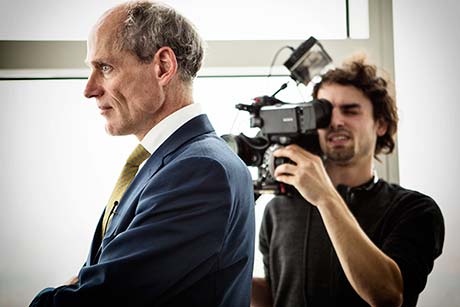 The more I hear you speak, so outspoken, the more I realize that it is almost a miracle that you’ve arrived at your current position!?
The more I hear you speak, so outspoken, the more I realize that it is almost a miracle that you’ve arrived at your current position!?
I thought for a long time that a diplomatic career was not feasible for me. Much too ambitious for someone with the name Grijns. That was until a couple of Amsterdam friends were taken on. Hey, maybe it’s less elitist than I suspected, I thought. So I tried myself and was successful. It wasn’t elitist at all and many outspoken and driven people work there.
Fascinated, he followed the developments surrounding the Dutch ambassador in Madrid in the 1980’s who moved on because he did not agree with the Cabinet decision regarding the placement of new nuclear weapons. It was a decisive moment. It was possible as a diplomat, although within certain limitations, to make your own choices. That appealed to him. He wanted that too.
I wanted to discover my limits. To what point am I loyal, when have I reached my limit? …. I am an idealist. I praise idealism. But on the other hand; you cannot be idealistic alone. To achieve something, to create something, you have to be pragmatic.
His first position took him to Vietnam, at the time an extremely poor country. “I was a junior clerk.” His wife, whom he had only known for a month before marrying her was willing to go on the adventure with him.
You’re not someone who has trouble making big decisions!?
I like risks. The unknown attracts me. I’m not easily scared of what I’ll find somewhere else. Certainly not in the cultural field.
You’re a free thinker!
Hahaha. No, not at all. I don’t think that many people in my immediate vicinity would call me a free thinker either. I am not a conservative person, certainly not in terms of political views, but I hold on to certain values that I was given in my youth.
We’ve only been talking for an hour but already I’m moved by the way in which he dares to think out loud about the moral framework in the tough everyday practice. Rarely have I seen the beautiful philosopher and tough negotiator united in one person.
Freedom in The Netherlands is the absolute faith, but I think there are limits to the concept of freedom. I have trouble with that broadly claimed freedom that you always have to say what you think. I see the pain that it sometimes brings to others …
He cites the difference in coverage between English and Dutch newspapers after the attack on Charlie Hebdo. In both countries it was strongly condemned. But where many Dutch newspapers published the controversial cartoons, English newspapers didn’t.
Anyway, despite all the ifs and buts he is clear in his conclusion.
We, in The Netherlands are proud of our freedom and it is very important to continue to promote it. Many countries lack freedom. This very often directly affects people with HIV and AIDS.
And so we arrive at the reason for this interview; the AIDS conference which will be held in Amsterdam in 2018. 20,000 people living with HIV, scientists, doctors, activists, politicians, media representatives, artists and storytellers like ourselves will gather together for one week at the RAI Congress Centre in Amsterdam. A conference of Olympic proportions.
Why do we do this every two years? How important is such a conference?
The biennial conferences are among the most important tools we have. They are the ultimate symbol of our willingness to act. Not only from the HIV communities, but also from the scientists and researchers. Such a congress puts the need to continue to fight on the map once again. They help to keep everyone involved and to keep believing in our agenda for the future.
Such a congress works both ways. On the one hand it offers the opportunity to explain the whole tableau of possibilities, opportunities to lay everything on the table and to show the world the progress that has been made. On the other hand such a congress is an important stage to bring attention to the “sense of urgency” broadly and clearly.
His strength is that he always brings back the abstract to the personal story. He takes one last sip of cold coffee before he races on.
If you and I are working together, on a long-term project, and the fight against HIV and AIDS is really a long-term project, then you need those signals every time. Stay active! We’re not there yet! What we do works! Look, this has been achieved and this and this … We are going in the right direction!
That’s what we need.
In silence he listens once more to his own arguments.
It’s like in your job, you occasionally need a pat on the back from your boss. It’s that simple really. This congress in Amsterdam is a pat on the back for the international community. And at the same time it is a kick in the ass to not fall back.
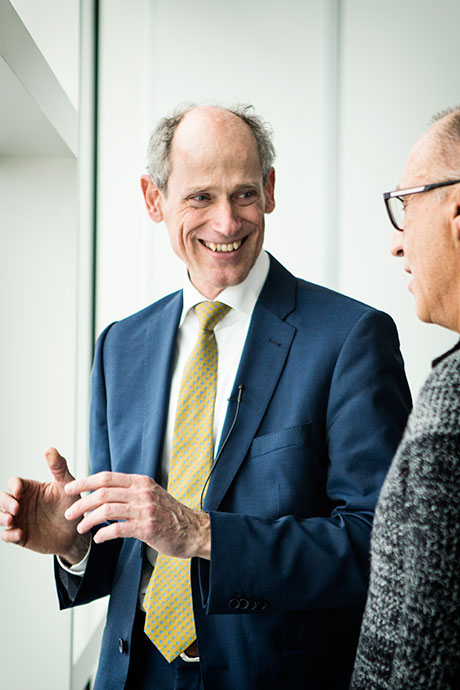 Can you already say something about what the theme of the conference in Amsterdam will be?
Can you already say something about what the theme of the conference in Amsterdam will be?
The message will be that we have to seize the opportunity. We really need to seize it!! That’s why I wanted so much for the conference to be organized in Amsterdam; the sense of urgency is too low in Europe. In The Netherlands too. Because of the great strides we have made in treatment we often think that we are already there. But, to give just one example, every year there are 1,000 people infected in The Netherlands. I find that an alarmingly high number. No, we’re not done yet. So an important part of the theme will be: Europe, Wake up.
Look, we know what we should do. We have an incredible amount of experience now. We have the expertise, good people … we know about prevention … If you think about it, there’s so much … We know how the medication works. We know more and more about the long-term effects of medication in old age. What Peter Reis is doing with his research in this area … That’s something we can be proud of. We are already at a very high level. But we have to seize the opportunity. It’s really too early to say we are there. Damn, we’re not there yet!
I say: pay now or pay forever !!! I didn’t think of that quote myself but it’s one that I wholeheartedly endorse. Amsterdam offers us the opportunity to show our European colleagues that we must continue to invest. The Danes have cut 40% of the HIV and AIDS budget. I think that’s short sighted. They will have to pay for it later.
Another important chapter in our story will be: we should pay more attention to the fight against stigma and all kinds of prejudices. Only when people feel safe will they seek access to care, to support. Only then will you go as gay in Georgia or as drug users in Kazakhstan to a clinic or a hospital. Only then will the girl in Uganda dare to ask for a condom, or an HIV test.
You are right. We have to convince whole societies to look at HIV in a different way. But won’t you become despondent from such a huge goal?
No, that must not make us despondent, I think we should be outraged. I am confronted with it in my travels. We talk a lot about stigma, discrimination. But what does it mean in practice!? That boy of 16 living with HIV in Russia who you talked about is living in that vast isolation … What can we do for him?
I get angry about it and I think we should also be angry about it at the conference. The challenge for the future is not in more pills. We will with them undoubtedly save many more people’s lives, and I am absolutely not being facetious about it, but I think that we can do and should do a lot more about gender inequality, education and awareness and combating stigma.
An ambitious, full agenda. What else would you like the Amsterdam conference to achieve before you can say it has been successful?
Another important goal is to get Eastern Europe and Russia on board. It is essential to let them feel that they belong. Even though there is a lot of resistance from them, even though they have totally different opinions about many things than we do; we really need to sit down with each other. The problems in the old Eastern bloc are too great to ignore.
What does Amsterdam stand to gain from the upcoming conference? Is it purely a nice source of income or is there more?
The Amsterdam conference offers many opportunities. If we do it right, if we use this conference as a benchmark, the conference can give a huge boost in many different areas. To the scientific world but also to patient organizations such as for example the HIV Society. Plus it will be a big party in the city with all those people from all over the world.
Les Enfants Terribles is a club of storytellers. ATLAS 2018 is a storytelling project. What do you see as our role?
What often makes the most impression is the story of one man or woman. That one guy in Moscow who doesn’t know how to carry on, that one girl in South Africa who fights for her future. That touches me. Your job is to gather those stories and share them with the Global Community. The fight against HIV and AIDS will not be won from one angle. We will do this together.
Erwin Kokkelkoren
Photo’s Marjolein Annegarn

